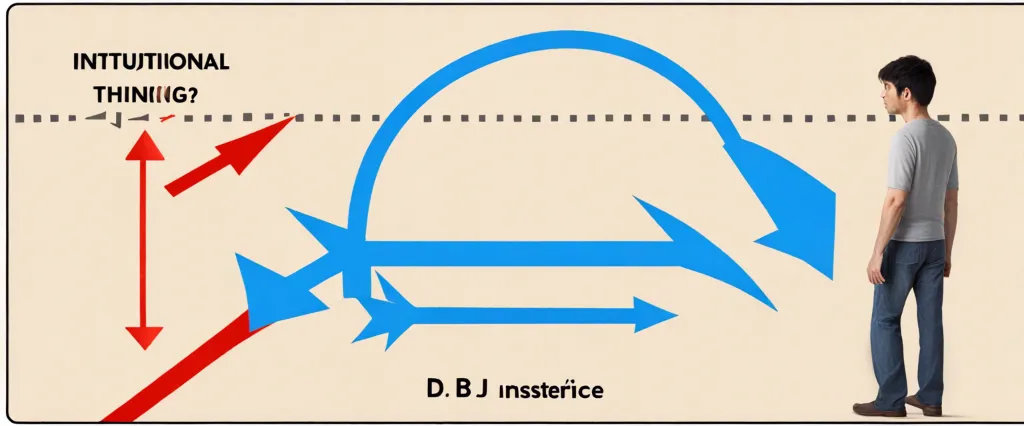
In today’s fast-paced world, where efficiency and productivity often take precedence, individuals are driven to seek effective strategies to develop healthier habits and achieve their goals. With countless self-help books flooding the market, it becomes essential to identify those that truly have the potential to bring about lasting change. Two popular works that have emerged as influential guides in this domain are “Tiny Habits” by Dr. B.J. Fogg and “The Power of Habit” by Charles Duhigg.
Both Fogg and Duhigg dive deep into the intricacies of habit formation, exploring the psychological, neurological, and sociological aspects that shape our behaviors. At their core, these books strive to empower readers with the tools and knowledge necessary to transform their lives through habit change. However, despite sharing this common goal, Fogg and Duhigg approach the subject matter from distinct perspectives, employing different methodologies and strategies to guide readers toward success.
“Tiny Habits” by Dr. B.J. Fogg offers a refreshing approach, emphasizing the power of small steps in creating lasting change. Drawing upon his extensive research and experience as a behavioral scientist, Fogg introduces readers to his groundbreaking concept of “tiny habits,” which revolves around adopting micro-sized behavioral changes that can be easily integrated into one’s daily routine. Fogg argues that aiming for drastic transformations from the outset can often lead to failure, as our motivation wanes and we succumb to inertia. By advocating for incremental changes and celebrating even the smallest victories, Fogg presents a compelling argument for the efficacy of his approach.
On the other hand, Charles Duhigg’s “The Power of Habit” takes readers on a captivating journey through the science behind habit formation. Duhigg delves into the components of habit loops, exploring the cues, routines, and rewards that underpin our behaviors. Through intriguing case studies and compelling anecdotes, Duhigg illuminates how habits are ingrained in our lives and unveils the potential for their transformation. What sets Duhigg’s work apart is his focus on habit loops at the organizational and societal levels, examining how they shape company cultures, social movements, and even entire communities. Combining journalistic storytelling with scientific research, Duhigg empowers readers to understand and harness the power of habits on individual and collective scales.
As we embark on this comparative study, we will examine the similarities and differences in the key insights, strategies, and practical applications presented by Fogg and Duhigg. By analyzing their approaches side by side, we aim to gain a comprehensive understanding of habit formation and arm ourselves with the tools needed to catalyze positive change in our lives. Indeed, with “Tiny Habits” and “The Power of Habit” as our guiding texts, we are poised to embark on a journey toward unlocking our full potential through the transformation of our habits.
Brief Summary of Two Books
Tiny Habits by Dr. B.J. Fogg
“Tiny Habits: The Small Changes That Change Everything” is a self-help book written by behavior scientist Dr. B.J. Fogg. The book explores the concept of creating lasting behavioral changes through the adoption of tiny habits.
Dr. Fogg introduces the idea that small, simple actions can lead to significant transformations, challenging the common belief that changing behavior requires immense willpower and motivation. He explains that by developing small habits, one can gradually build a foundation for more positive behaviors.
The book outlines a three-step process for creating and sustaining tiny habits: cue, routine, and reward. Dr. Fogg emphasizes the importance of starting with a prompt or trigger, establishing a simple and easy-to-do routine, and rewarding oneself immediately after completion. By embedding these habits into daily routines, individuals can make long-lasting changes without feeling overwhelmed.
Throughout the book, Dr. Fogg shares various personal anecdotes and success stories from his years of research and teaching. He also addresses common barriers to behavior change, suggests ways to make habits stick, and provides practical tips for adapting tiny habits to different areas of life, including health, productivity, and relationships.
In essence, “Tiny Habits” offers a practical and accessible guide to transforming behaviors by breaking them down into small steps. Dr. B.J. Fogg provides readers with valuable insights, strategies, and tools to help them create positive, lasting changes in their lives.
The Power of Habit by Charles Duhigg
“The Power of Habit” by Charles Duhigg explores the role of habits in our lives and provides insights into how we can change them to achieve personal and professional success. Duhigg delves into the science behind habit formation and shows how habits are deeply ingrained in our brains. The book examines the habits of individuals, organizations, and societies, uncovering the key factors that shape and influence them.
Duhigg introduces the concept of the “habit loop,” which consists of a cue, routine, and reward. By understanding this loop, readers can gain the power to identify the cues that trigger their habits and change their routines to achieve desired outcomes. Furthermore, Duhigg illustrates how habits can be modified or replaced by leveraging the power of belief, community, and willpower.
The author explores various real-life examples and case studies to illustrate the effectiveness of habit transformation. He highlights the story of Alcoa, a struggling aluminum company that was turned around by focusing on safety habits. Duhigg also profiles individuals, such as Michael Phelps and Martin Luther King Jr., showcasing how their habits contributed to their extraordinary achievements.
“The Power of Habit” provides practical strategies and techniques to help readers create positive habits in their personal and professional lives. Duhigg emphasizes the importance of willpower, intention, and accountability in habit change, offering insightful advice on how to form new habits and break old ones.
Overall, the book emphasizes the immense power of habits in shaping our lives and presents a compelling argument for the possibility of transformation through understanding and intentionally changing our habits.
Comparison between Two Books

Similarities in Self Help
Both “Tiny Habits” by Dr. B.J. Fogg and “The Power of Habit” by Charles Duhigg delve into the realm of self-help and share some key similarities.
1. Focus on forming habits: Both books emphasize the importance of habits in shaping our lives. They aim to provide practical guidance on how to develop positive habits that can lead to personal growth and success.
2. Identification of triggers and rewards: Both authors stress the significance of understanding the cues or triggers that prompt certain habits and the rewards associated with them. By identifying these triggers and rewards, individuals can manipulate and modify their habits effectively.
3. The role of small actions: Both books emphasize the power of starting with small actions or tiny habits. Dr. Fogg’s approach suggests starting with tiny, sustainable changes, while Duhigg describes how small actions can create powerful habits through the concept of the habit loop.
4. Emphasis on self-awareness: Both authors advocate for self-awareness as a crucial component of habit change. Fogg’s “Tiny Habits” method encourages individuals to reflect on their actions and emotions, while Duhigg’s book explores the role of self-awareness in recognizing and reshaping habits.
5. Practical techniques: Both books provide practical techniques and strategies to help readers implement positive change in their habits. Fogg’s “Tiny Habits” method offers step-by-step guidance on creating and maintaining small habits, whereas Duhigg’s book suggests various approaches like habit stacking and habit tracking.
6. Reliance on scientific research: Both authors rely on scientific research to support their ideas and provide credibility to their methods. Fogg and Duhigg explore studies and experiments conducted in the fields of psychology and neuroscience to explain the mechanisms behind habit formation and change.
7. Personal anecdotes and examples: Both authors use personal anecdotes and real-life examples to illustrate their concepts and theories. These stories help readers relate to the ideas and envision how they can apply them in their own lives.
In summary, both “Tiny Habits” and “The Power of Habit” are self-help books that focus on the importance of habits, emphasize self-awareness, provide practical techniques, and rely on scientific research. They both aim to empower individuals to understand and control their habits to achieve personal growth and success.
Divergences in Self Help
Both Tiny Habits by Dr. B.J. Fogg and The Power of Habit by Charles Duhigg delve into the realm of self-help and focus on habit formation. However, while they share some similarities, there are significant divergences in their approaches and perspectives.
1. Methodology: Dr. B.J. Fogg’s Tiny Habits approach emphasizes starting small and focusing on specific behaviors. Fogg suggests identifying tiny, achievable habits that are easy to incorporate into daily routines. In contrast, Charles Duhigg’s The Power of Habit explores the science behind habits and delves into the concept of habit loops, emphasizing understanding the cues and rewards that drive habits. Duhigg places more emphasis on analyzing and modifying the existing habits by addressing the underlying triggers and rewards.
2. Research vs. Application: The Power of Habit delves deeper into the science and research behind habit formation. Charles Duhigg examines various case studies, studies in neurology, and interviews with experts to provide a comprehensive understanding of habits. Alternatively, Tiny Habits focuses more on practical application. Dr. B.J. Fogg derives his insights from a combination of personal experience, his extensive work as a behavior scientist, and his research on habit formation.
3. Scope: The Power of Habit covers a broader spectrum of habit formation, targeting individual habits, organizational habits, and societal habits. Duhigg explores how habits influence personal development, business performance, and social dynamics. On the other hand, Tiny Habits narrows its focus primarily on individual habits and offers a step-by-step guide to creating and modifying them.
4. Behavioral Change vs. Habit Formation: While both books aim to enable behavioral change and personal growth, their primary focus differs. Tiny Habits emphasizes the formation of new habits and the modification of existing ones to instigate positive change. Dr. B.J. Fogg helps readers understand how tiny habits can lead to larger transformations. In contrast, The Power of Habit delves into the psychology of habit and explores how habits can shape our lives and contribute to personal and collective success.
5. Writing Style: The writing styles of the two books diverge significantly. Tiny Habits adopts a more straightforward, concise, and actionable approach, providing readers with clear instructions and guidance. Fogg’s writing is practical and conversational, making it easy for readers to follow and implement the strategies. On the other hand, Charles Duhigg’s The Power of Habit adopts a more analytical and research-driven approach, delving into case studies and scientific explanations.
In summary, while both Tiny Habits and The Power of Habit fall under the self-help genre and focus on habit formation, their approaches and perspectives differ considerably. Tiny Habits emphasizes starting small and focuses on specific behaviors, providing practical steps for individuals to create and modify habits. The Power of Habit delves deeper into the science and research behind habits, exploring various case studies and uncovering the broader societal implications of habits. These different approaches offer readers diverse insights and strategies for achieving personal growth and behavioral change.

Conclusion
Both “Tiny Habits” by Dr. B.J. Fogg and “The Power of Habit” by Charles Duhigg are highly regarded books on the topic of habits. However, the choice between the two depends on your specific interests and goals.
If you are looking for a more practical guide that provides actionable steps to create lasting habits, “Tiny Habits” is the better choice. Dr. B.J. Fogg presents his method of behavior change, emphasizing small and sustainable changes to establish new habits. The book offers a clear framework and tools to help readers implement these habits effectively.
On the other hand, if you are interested in a comprehensive exploration of the science behind habits and how they shape our lives, “The Power of Habit” by Charles Duhigg is recommended. Duhigg delves into various case studies and research, delving into the psychology and neuroscience of habit formation. It also offers insights into how to change or break existing habits.
Ultimately, both books offer valuable insights into understanding and changing habits. Consider your preferences and objectives and choose the book that aligns better with your needs.


